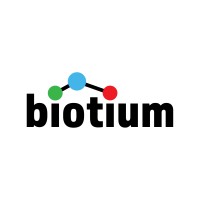UACA Monoclonal / PE / AE-5
Product Details
| Description | Mouse Monoclonal anti-UACA / Nucling (AE-5) - | |
|---|---|---|
| Conjugate | PE | |
| Clone | AE-5 | |
| Target Species | Human, Mouse | |
| Applications | FC, IF, WB | |
| Supplier | Biotium | |
| Catalog # | Sign in to view product details, citations, and spectra | |
| Size | ||
| Price | ||
| Antigen | ||
| Host | ||
| Isotype |
About UACA
This gene encodes a protein that contains ankyrin repeats and coiled coil domains and likely plays a role in apoptosis. Studies in rodents have implicated the encoded protein in the stimulation of apoptosis and the regulation of mammary gland involution, in which the mammary gland returns to its pre-pregnant state. This protein has also been proposed to negatively regulate apoptosis based on experiments in human cell lines in which the protein was shown to interact with PRKC apoptosis WT1 regulator protein, also known as PAR-4, and inhibit translocation of the PAR-4 receptor. Autoantibodies to this protein have been identified in human patients with panuveitis and Graves' disease. Differential expression of this gene has been observed in various human cancers. [provided by RefSeq, May 2017]
This gene encodes a protein that contains ankyrin repeats and coiled coil domains and likely plays a role in apoptosis. Studies in rodents have implicated the encoded protein in the stimulation of apoptosis and the regulation of mammary gland involution, in which the mammary gland returns to its pre-pregnant state. This protein has also been proposed to negatively regulate apoptosis based on experiments in human cell lines in which the protein was shown to interact with PRKC apoptosis WT1 regulator protein, also known as PAR-4, and inhibit translocation of the PAR-4 receptor. Autoantibodies to this protein have been identified in human patients with panuveitis and Graves' disease. Differential expression of this gene has been observed in various human cancers. [provided by RefSeq, May 2017]
About PE
Phycoerythrin (PE, R-PE) is a red-emitting fluorescent protein-chromophore complex that can be excited the 488-nm blue, 532-nm green, or 561-nm yellow-green laser with increasing efficiency and captured with a 586/14 nm bandpass filter. PE has an excitation peak at 565 nm and an emission peak at 578 nm. PE is 240kD in size and has an extinction coefficient of ~2x10^6 which makes it one of the brightest fluorophores available and a potent donor upon which to build tandem fluorophores with longer Stoke's Shifts.
Phycoerythrin (PE, R-PE) is a red-emitting fluorescent protein-chromophore complex that can be excited the 488-nm blue, 532-nm green, or 561-nm yellow-green laser with increasing efficiency and captured with a 586/14 nm bandpass filter. PE has an excitation peak at 565 nm and an emission peak at 578 nm. PE is 240kD in size and has an extinction coefficient of ~2x10^6 which makes it one of the brightest fluorophores available and a potent donor upon which to build tandem fluorophores with longer Stoke's Shifts.
Experiment Design Tools
Panel Builders
Looking to design a Microscopy or Flow Cytometry experiment?
Validation References
Reviews & Ratings
| Reviews |
|---|
Looking for more options?
228 UACA antibodies from over 15 suppliers available with over 45 conjugates.





